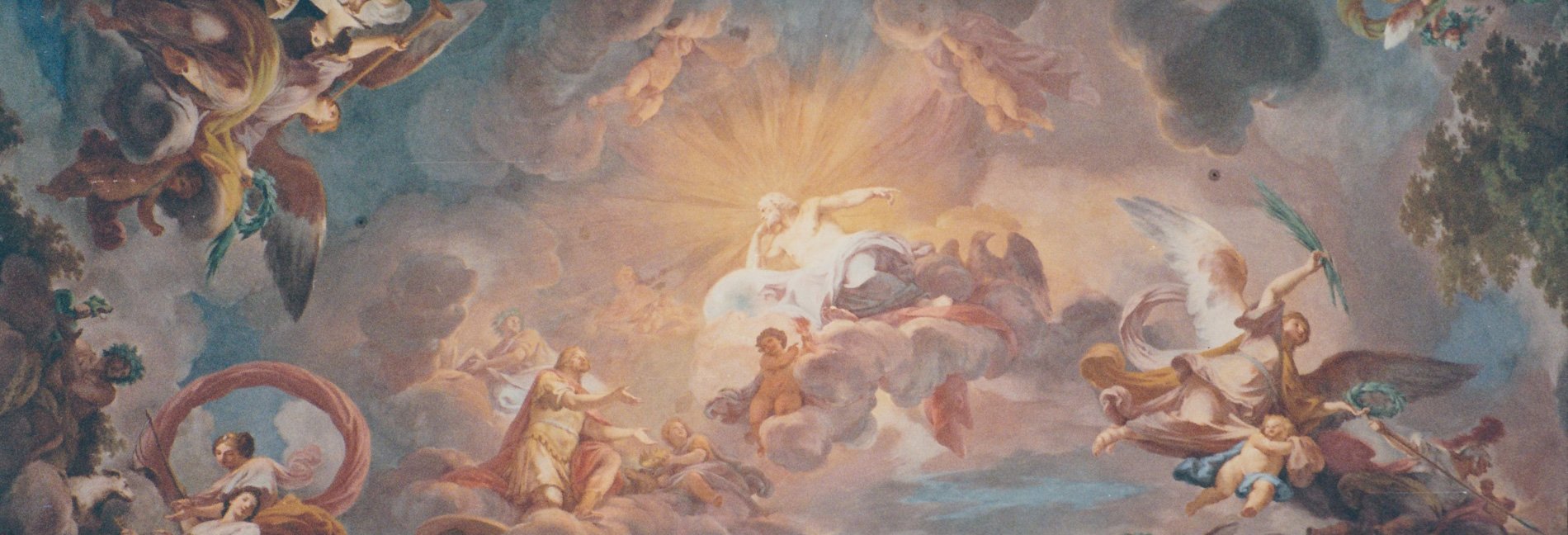Pope Leo XIV – Inaugural Mass Homily
Elected on May 8, 2025, as the 267th successor of St. Peter, Pope Leo XIV’...

Writing to Proba regarding prayer, Augustine notes that the hope of happiness in heaven is so great and incapable of being expressed in words that the Spirit comes to help us in our weakness.
The person who asks for and seeks this one thing from the Lord makes his petition confidently and serenely. He has no fear that, when he receives it, it may harm him, for if this is absent, anything else he duly receives brings no benefit at all. This is the one, true and only life of happiness, that, immortal and incorruptible in body and spirit, we should contemplate the Lord’s graciousness for ever. It is for the sake of this one thing that everything else is sought and without impropriety requested. The person who has this will have all that he wants; in heaven, he will be unable to want, because he will be unable to possess anything that is unfitting.
In heaven is the fountain of life, that we should now thirst for in prayer as long as we live in hope and do not yet see the object of our hope, under the protection of his wings in whose presence is all our desire, so that we may drink our fill from the plenty of his house and be given drink from the running stream of his delights, for with him is the fountain of life, and in his light we shall see light, when our desire will be satisfied with good things, and there will be nothing to ask for with sighs but only what we possess with joy.
Yet, since this is that peace that surpasses all understanding, even when we ask for it in prayer we do not know how to pray for what is right. Certainly we do not know something if we cannot think of it as it really is; whatever comes to mind we reject, repudiate, find fault with; we know that this is not what we are seeking, even if we do not yet know what kind of thing it really is.
There is then within us a kind of instructed ignorance, instructed, that is, by the Spirit of God who helps our weakness. When the Apostle said: If we hope for something we do not see, we look forward to it with patience, he added, In the same way the Spirit helps our weakness; we do not know what it is right to pray for, but the Spirit himself pleads with sighs too deep for words. He who searches hearts knows what the Spirit means, for he pleads for the saints according to God’s will.
We must not understand by this that the Holy Spirit of God pleads for the saints as if he were someone different from what God is: in the Trinity the Spirit is the unchangeable God and one God with the Father and the Son. Scripture says: He pleads for the saints because he moves the saints to plead, just as it says: The Lord your God tests you, to know if you love him, in this sense, that he does it to enable you to know. So the Spirit moves the saints to plead with sighs too deep for words by inspiring in them a desire for the great and as yet unknown reality that we look forward to with patience. How can words express what we desire when it remains unknown? If we were entirely ignorant of it we would not desire it; again, we would not desire it or seek it with sighs, if we were able to see it.
This excerpt of St. Augustine’s letter to Proba (Ep. 130, 14, 27–15,28: CSEL 44, 71-73) is used in the Roman Office of Readings for Friday in the 29th week in Ordinary Time.
No Comments